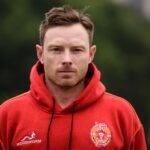
Relief for Personal Income Tax Expected Soon, President Announces at University Lecturers’ Conference

- Agreements with International Community for the Economic Recovery Cannot Be Violated.
- Education Sector Must Be Transformed to Align with National Economic Goals.
- Sri Lanka to Become a Regional Academic Hub.
In a landmark keynote address at the University Lecturers’ Conference held at the Water’s Edge Hotel yesterday evening (13), President Ranil Wickremesinghe revealed plans to provide relief for personal income tax in the near future.
The President mentioned that two proposals, currently under review by the Treasury and the counter proposal by the International Monetary Fund (IMF) are being considered to achieve the goal of providing some benefit to the middle segments like the academia.
In his speech, delivered under the theme “Transforming Sri Lanka’s Higher Education towards a Developed Nation,” President Wickremesinghe also announced a comprehensive reform plan aimed at transforming Sri Lanka’s higher education system as a key strategy to stimulate economic recovery.
President Wickremesinghe emphasized the critical role of higher education in driving the country towards development and highlighted the need for state universities to operate with greater independence to enhance the quality of education.
Addressing the gathering President Ranil Wickremesinghe further elaborated,
Before attending this event, I took part in an important discussion about the country’s economic situation. However, there may be some good news for you all as we proceed, which might help retain some of the lecturers in Sri Lanka.
The past two years have been very difficult, as the minister mentioned. It was thanks to the skill of our ministers that we survived the first year, virtually from nothing. We started from scratch and then built the economy up. Now we have signed agreements with the OCC, IMF, and others. There are many proposals in these agreements, but I believe the benchmarks are key. You should be aware of them because we have to operate within these benchmarks.
The macroeconomic benchmarks, agreed upon between Sri Lanka, 17 OCC countries, credit countries, China (represented by the Exim Bank), the IMF, the ADB, and the World Bank totalling 21 entities took over a year of negotiations. These benchmarks cannot be changed; how we achieve them is a different matter.
First, we must have a primary budget surplus of 2.3% by 2025-2032. Currently, we are at 0.6% of GDP, so our budget needs to be adjusted to achieve a surplus of 2.3%. The public debt to GDP ratio must be reduced to 95% by 2032, down from 111% today. The gross financing needs to GDP ratio must be 13% by 2032, while it is currently 27.8%, so we need to halve it. The forex debt service to GDP must be 1.3% compared to the current 9.2%. The tax revenue to GDP ratio must reach 14% by 2025, while we are currently at 9.5%. Our international reserves must be 15 billion USD by 2028; we are currently at 5.6 billion USD. Inflation must not exceed 5%, and treasury guarantees should be less than 75%. We have achieved these two targets for now.
We cannot have arrears in government payments beyond three months. Monetary financing by the central bank is not permitted. Cost-effective pricing of electricity and fuel must be maintained, and any losses in the CEB or CPC must be directly compensated through treasury transfers. Minimum expenditure thresholds on social safety net cash transfers must be maintained. We agreed to increase the number of beneficiaries from 1.6 million to 2.4 million. During the bankruptcy period, we provided more social benefits than before, and we need to continue this trend. These terms are non-negotiable.
Our creditors have agreed to provide debt relief up to about 10 billion USD. The IMF agreement gave us USD 2.9 billion over three years. Together with the USD 10.5 billion benefit, this aids us significantly, but we must meet the targets. This is why we have introduced the Economic Transformation Bill.
We should aim to make Sri Lanka an export-oriented and competitive economy. We are now in the next stage of discussing tax thresholds. We have had strong economic performance this year and hope to maintain it next year. We are considering adjustments to the personal income tax structure to provide relief to taxpayers.
Currently, there are two proposals. The Treasury’s proposal maintains a tax-free threshold of Rs. 1.2 million, widens the tax band from Rs. 500,000 to 720,000, and keeps the top tax rate at 36%. And the counter proposal by the IMF proposes that the tax-free threshold remains at Rs. 1.2 million, but the first tax band is widened from Rs. 500,000 to 1 million rupees, shifting all tax bands up by 500,000 rupees, with subsequent bands remaining at Rs. 500,000 rupees and the top tax rate remains at 36%.
We are evaluating these proposals and working towards one that provides relief. I am considering the IMF proposal. Our decision will be guided by what is best for the country and the people.
The economy is growing, but we need to accelerate growth. We must focus on maximizing the benefits of our human resources. To do this, we need a top-class education system. We are discussing improvements to the school system and post-school education. We plan to consolidate about 500 vocational training centres and nine provincial agencies into vocational education colleges. We are also considering university colleges of technology and management offering associate degrees.
Many students have asked why they were educated if they cannot find jobs. To address this, we propose associate degrees that are job-oriented, with the option to pursue bachelor’s or higher diplomas later.
We aim to elevate our universities to a higher standard. This will take time, but we need to start by restructuring state universities and providing more autonomy. Universities should have the freedom to manage their finances and attract foreign students. We could consider a model where the government funds local students while universities charge foreign students.
We are also planning new universities and expanding existing ones. We have proposals for four new technology-focused universities and potential collaboration with international institutions. As we expand, we may face a shortage of academics.
We also have non-government degree-awarding institutes that could be granted university status. We should consider new models for universities, including options for funding and management. The goal is to make Sri Lanka a key academic centre, capitalizing on the anticipated increase in demand for higher education in the region.
We have many plans and ideas for advancing education and economic growth. We need to continue building on what we have started and aim for success. I appreciate your time and am open to any questions you may have.



